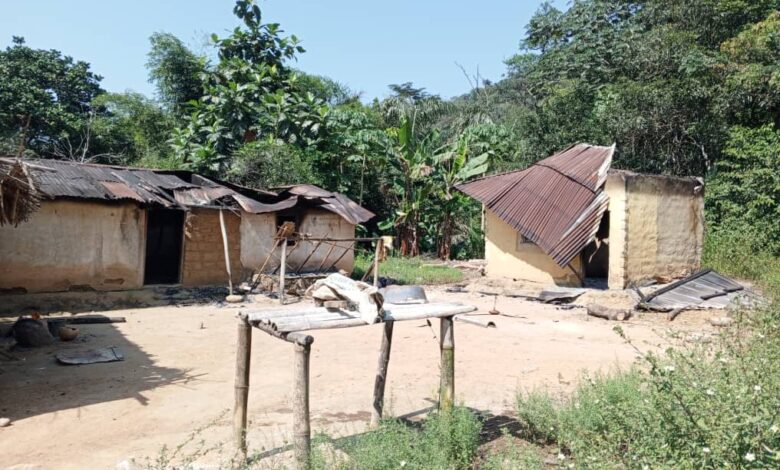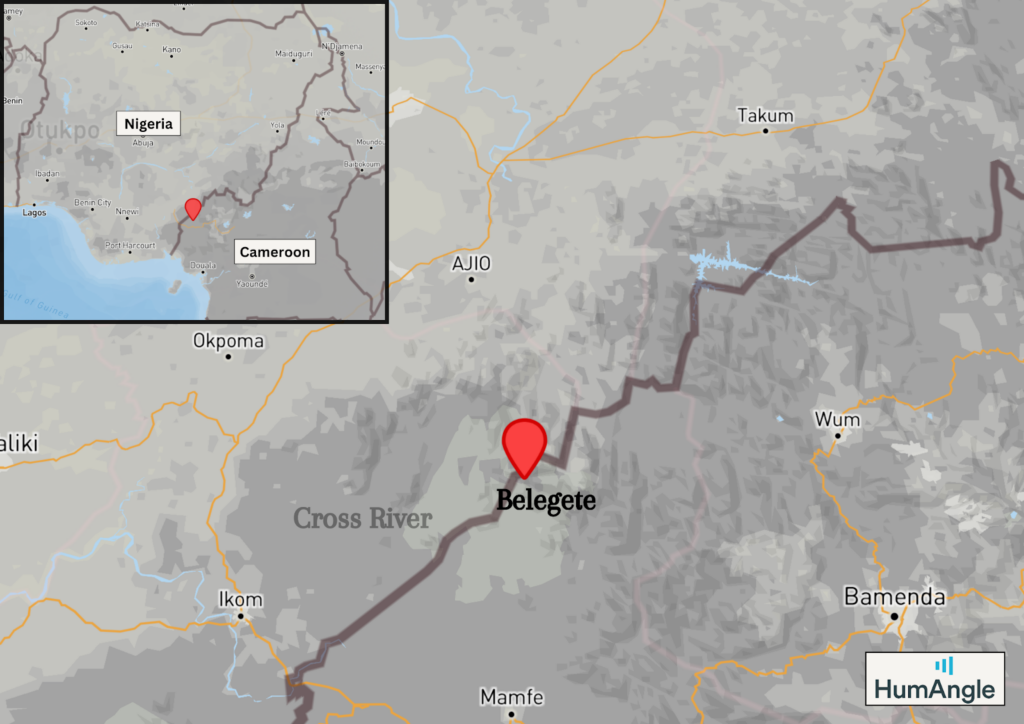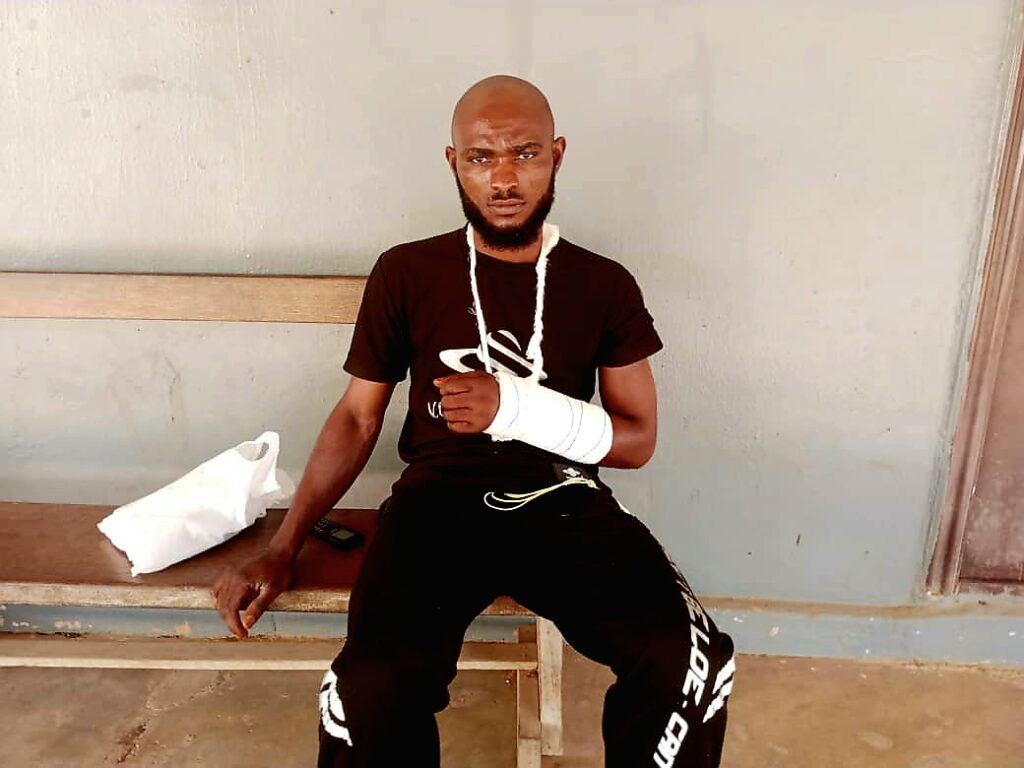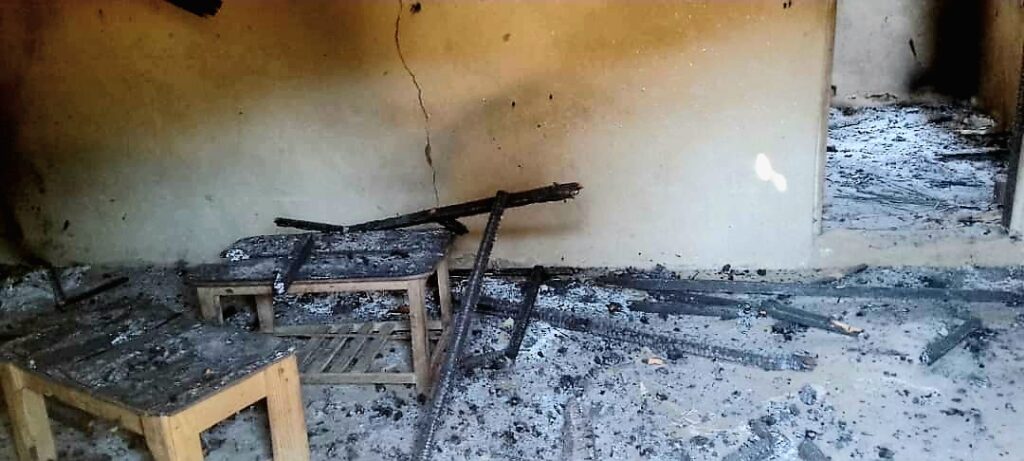Ambazonian Insurgents Ravage Nigerian Community For Housing Refugees From Cameroon
The rebel fighters from Cameroon invaded Belegete, a community in the Obanliku area of Nigeria’s Cross River, and attacked it for over 24 hours. Over a thousand people have now become displaced, while many are either injured or missing.

Belegete is a border village between Nigeria and Cameroon. The community in Nigeria’s Cross River State has hosted refugees from Cameroon each time they were attacked by separatist rebels of the Ambazonia Defence Forces (ADF).
The rebels, who are calling for an independent state called Ambazonia in the southwest and northwest regions of Cameroon, have been at loggerheads with the country’s authorities since 2017. Before then, the English-speaking regions of Cameroon had repeatedly complained that they were marginalised by the majority French-speaking regions and that they were sidelined in the public sector.
When lawyers and teachers in the English-speaking regions took to the streets to express their displeasure over domination by the French-speaking majority in 2017, security agents responded with firearms, killing 17 protesters. Since then, clashes between separatists and the government have increased, leading to over 6,000 deaths and the displacement of nearly 600,000 people. Smaller militia groups have also sprung up, making it difficult for the government to negotiate with the non-state actors.
As the crisis continues, hundreds of undocumented migrants and refugees enjoy unhindered access to many Nigerian border communities through the forest areas. One of such communities is Belegete.

HumAngle learnt that the absence of immigration checkpoints allows Cameroonians who fled from the violence to move into Nigeria without identification. Sources also said that Ambazonian militants also move into the border communities freely.
Unprecedented attack
To the surprise of many, some of the ADF rebels abducted Chief Francis Ogweshi, a traditional leader in Belegete and 20 others on Tuesday, Dec. 5. The abductions were perfected after they had held the village hostage for 24 hours without the intervention of the Nigerian government.
“There’s no motorable road to the community and the network to communicate via phone is very poor, making life very difficult during an emergency,” said Mustapha Ogweshi, son of the kidnapped leader. “The kidnappers asked my father to produce Cameroonians seeking refuge in our community, including rebels who had deserted, but my father objected, saying he didn’t know their whereabouts.”
Two days after the invasion, concerned residents sought the assistance of the Nigerian military to rescue Chief Ogweshi and other kidnapped individuals in the forest.
“During the search in the forest, the rebels and soldiers exchanged gunshots, leading to the death of one of the Ambazonia fighters. In retaliation, they (militias) killed my father and threw him in the river, where his body was discovered three days later,” Mustapha explained. His father’s death has deeply saddened the community, he added.

Midnight raid
While residents were still mourning the death of their Chief and anticipating the return of others in captivity, Ambazonia rebels attacked their community in a midnight raid on Friday, Dec. 8. They opened fire on residents, cut some people with cutlasses, and burnt several houses, leading to the displacement of many, including children.
Muwah Augustine is one of those directly hit by the militias’ cutlass during the incident. The young graduate had gone to Belegete to visit his parents.
“It was a bad day for us in the community,” he told HumAngle. “I was asleep when the terror group arrived in the night, shooting sporadically at people. They broke into my door and started beating me alongside many other youths in the community. They collected our phones, broke them and gave us the worst beating of our lives,” he said.
He added that he had no idea where his parents were and had searched for them without success.
“Somebody informed me that he saw them running into the forest when the Ambazonia boys arrived, but it’s been three days now and we are still searching for them. I have combed the forests in search of my aged parents, but they are nowhere to be found. I am not sure if they are still alive or not,” he told HumAngle tearfully on Thursday.


Samuel Afah, a farmer, also told HumAngle that he was attacked while running for safety around 4 a.m.
“The only thing I can say is that I give all glory to God because I never believed that I would survive. They took me to the bush and cut me repeatedly. They abandoned me in the pool of blood, thinking I was dead, but some of the villagers running for safety saw me and rescued me. They put some leaves on the spot where I was cut and later administered first aid,” a devastated Samuel recounted.

The displaced
HumAngle obtained various pictures and videos that show the massive destruction of houses, schools, hospitals and even religious centres. Sunday Achue, a youth leader in Belegete, said over a thousand people have been displaced. While some people are now sleeping in the cold at the Obudu ranch area, many women and children are still missing.
Corroborating this, a woman who identified herself as Veronica said they have continued to survive on corn and garri since their displacement. She added that her lifetime savings were burnt because she only left the house with a wrapper.
“We have no food or clothes and getting water has remained difficult. We are scared of returning to our village. Our only strength is that we are all together and seeing ourselves. My child drank chemicals, thinking it was water. We are calling on government and non-governmental organisations to help us. We are living under threat. There’s nobody in the community as I speak. We are dying,” she cried.

Ndah Ferdinand, Belegete community chairman and one of the village’s teachers at Government Primary School said the entire community has been left to rot and feed on leaves.
“I work as a primary school teacher and I feel sorry for our students because we could not continue the examination we started on Monday. The children are crying as a result of hunger. People have lost their money, farm produce and even certificates. Nigeria’s borders are porous and we are indeed in need of security personnel. There is also a lack of internet access, which makes communication difficult. There are a lot of missing children and women. The whole community has been sacked and we don’t know when to return because the rebels have promised to come back.”
Confirming the possible return of the rebels, Mustapha, son of the late chief, said the separatists left a message that they were coming back within the next two weeks. “It is the major reason our people are scared of returning home,” he explained.
“When we briefed the police, they said it was media hype, but I told them that I can’t do media hype with my father’s life. Our bush tracks need to be protected.”
Meanwhile, Cross River police spokesperson Irene Ugbo did not respond to HumAngle’s enquiries regarding efforts to ensure that residents of Belegete return home safely.

Missing families
A displaced resident who simply identified himself as Amos told HumAngle some of his relatives were ‘half dead’ in the bush. “There are a lot of pregnant women missing in the bush. My grandmother is still left in the bush and I don’t know what she’s passing through during the day and night. We have over 20 youths still in the captivity of the Ambazonia fighters. We are calling for security assistance,” he lamented.
“I hid myself in the forest for three days before I collapsed. I woke up in the hospital even though I did not know the person that rescued me. I am now in the hospital and the doctors are asking for money to continue with treatment. I want the world to come to my aid and also help me locate my family members. I have a wife and four children, but I don’t know what they are going through because I don’t know their whereabouts.”
Juliet Afah, a 20-year-old mother of one, never believed that her husband would be missing on the day she delivered her child. He had promised he would be there to support her when it was time to push. Today, he is missing.
“Our houses were burnt on Dec. 8, and I put to bed on Dec. 11. All the things I bought to take care of the child were burnt. As I speak, I do not know the whereabouts of my husband, and he’s also not aware that I have delivered our baby while running for safety,” she cried.
“I have been in pain since the day I gave birth. The baby has no clothes, and I have been surviving on garri. I have not taken any good food because there is little to what the people displaced with me can do. It has really been terrible for us here.”

Peter Akpanke, who represents Obanliku, Bekwarra, and Obudu Federal Constituency at the National Assembly, has condemned the delayed response from Nigeria’s security forces. He urged the government to ensure that security agencies mount their posts across border communities to avert pains being inflicted on Nigerians in border communities.
The Paramount Ruler of Obanliku, Uchua Amos Item, has also called on the authorities to fix the road leading to the community to enable easy access.
The deputy governor of the troubled state, Peter Odey, has, however, pointed to the influx of thousands of refugees without proper identification as the major security threat. The state is said to partner with the federal Ministry of Interior to establish outposts for various security agencies to regulate the immigration of foreigners.
“Our hope lies in the government; we need them to save us as early as possible,” Walter Egba, one of the displaced residents of Belegete, told HumAngle. “We cannot stop the Ambazonia fighters except with the help of federal security agents because they are more powerful and carry sophisticated weapons.”
Support Our Journalism
There are millions of ordinary people affected by conflict in Africa whose stories are missing in the mainstream media. HumAngle is determined to tell those challenging and under-reported stories, hoping that the people impacted by these conflicts will find the safety and security they deserve.
To ensure that we continue to provide public service coverage, we have a small favour to ask you. We want you to be part of our journalistic endeavour by contributing a token to us.
Your donation will further promote a robust, free, and independent media.
Donate HereStay Closer To The Stories That Matter




